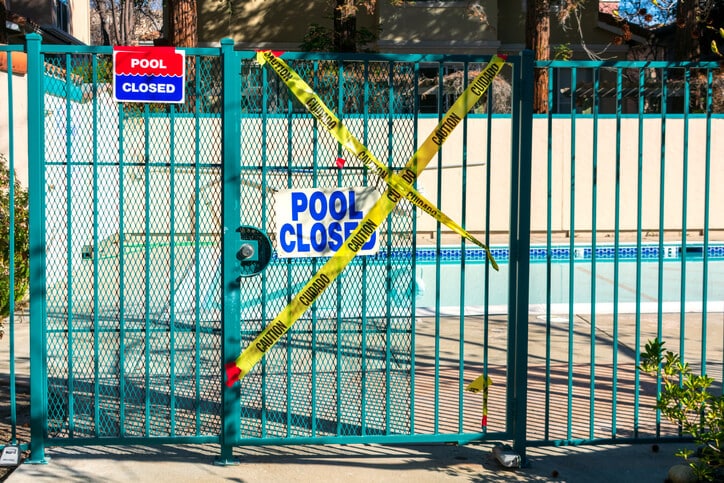
While swimming pool activities offer fun and recreation, negligence can be dangerous. If you or a loved one suffered an injury due to safety risks, you have the right to demand compensation. Here are some legal considerations that you should know about when filing a claim for an Arizona pool accident:
Premises Liability
In swimming pool accident cases, understanding premises liability is key to pursuing a successful claim. This legal concept is the basis for determining fault and accountability, such as who should bear the responsibility for injuries suffered on the property. As a general rule, pool owners and operators have a duty of care to provide a safe environment for visitors. If they fail to meet this duty, resulting in an accident, they may be held liable. However, such a level of care depends on the victim’s status:
- Invitee: Say, for example, you were invited as a guest to a party. In this case, the pool owner owes you the highest level of care, including checking the area for hazards.
- Licensee: For instance, you dropped by for a casual visit. The owner must warn you of known dangers. This, however, does not obligate the said owner to inspect their property for unknown risks.
- Trespasser: Trespassers do not receive legal protection. If you are not supposed to be there in the first place, then why would the owner be responsible if anything bad happens to you?
However, it’s a different case if it’s a small child. That’s where the attractive nuisance doctrine comes in. Pools are considered especially tempting to kids. Therefore, owners must take precautions, like locking gates and installing barriers to prevent unsupervised access to the pool. For example, if a homeowner fails to secure a pool gate and a neighborhood child drowns. In this case, the owner may be held liable even if the child was trespassing.
Negligence
As mentioned earlier, “duty of care” means that pool owners and operators are obligated to maintain and manage pool facilities. This includes:
- Regularly inspecting the pool and its surroundings
- Addressing potential hazards promptly (slippery surfaces, broken equipment)
- Installing proper signage (depth markers, area restrictions, warning signs)
- Following safety measures (barrier or fencing requirements, latch, gates)
- Storing chemicals and other dangerous items away from the swimming areas
- Providing adequate supervision
Failure to comply with Arizona pool regulations may be considered negligence. Violation establishes fault on the part of the pool owner, especially if the breach resulted in injuries. Hence, proving negligence involves demonstrating that:
- The owner knew or should have known about the hazardous condition
- Failed to address the issue or correct the problem
- This failure directly caused the accident
So, when filing a claim, you need to gather enough evidence. This includes maintenance records, surveillance footage, eyewitness testimonies, and expert opinions to help build a strong case.
Comparative Fault
Swimming pool accident lawsuits in Arizona follow the concept of comparative fault, which assesses the percentage of responsibility of each party involved. That means even if you’re partly to blame for what happened, you can still recover damages. Comparative fault is a fair judgment for injury claims, especially when the victim ignored warning signs or engaged in reckless behavior.
This law also helps claimants manage expectations and evaluate potential outcomes. Hence, if there is contributory negligence involved in your case, the court will reduce your compensation based on how much you contributed to the accident.
For example, you were supposed to be watching your kid near the pool, but got distracted scrolling on your phone. Hence, the court may find you 30% at fault, so your compensation would be reduced accordingly. However, even if the court finds you to be 90% responsible, you’re still entitled to the remaining 10% of the assessed damages.
This principle applies whether you’re the injured party or defending against a claim as a property owner. Consequently, it opens the door to a defense based on the victim’s actions or inactions. Often, defendants use this strategy to minimize their liability. Therefore, to protect your interests, you must have a reliable swimming pool accident lawyer by your side.
Statute of Limitations
Here’s something most people overlook until it’s too late: the clock is ticking the moment the accident happens. In Arizona, you usually have two years from the date of the injury to file a claim. If a public pool or government-owned facility were involved, the rules change even more:
- You must file a Notice of Claim within 180 days of the incident.
- You only have one year to bring a lawsuit.
If you miss these deadlines, your claim may be dismissed, regardless of merit. So, talk to a swimming pool accident attorney as soon as you can.
Product Liability
Not all pool accidents stem from property owner negligence. There are instances where accidents are caused by defective pool products. Thus, Arizona law allows injury victims to pursue product liability claims if a faulty product contributes to an accident. Manufacturers may be held liable for injuries resulting from defects. Examples include:
- Malfunctioning drain covers are causing suction injuries
- Flotation devices that do not work as advertised
- Pool heaters or electrical systems leading to electrocution
- Poorly designed slides or diving boards that easily crack
Under this law, you don’t have to prove negligence. You need only demonstrate that: (1) the product was defective; (2) that it was used as intended; and (3) that it caused harm. You can go after the manufacturer or distributor if something was made poorly, came without proper warnings, or didn’t function safely.
Ultimately, knowing how these factors may affect your claim can help you protect your best interests. If you or a loved one in Arizona has been injured in a swimming pool accident recently, we can help you obtain maximum recovery for your claim.


